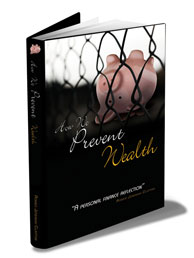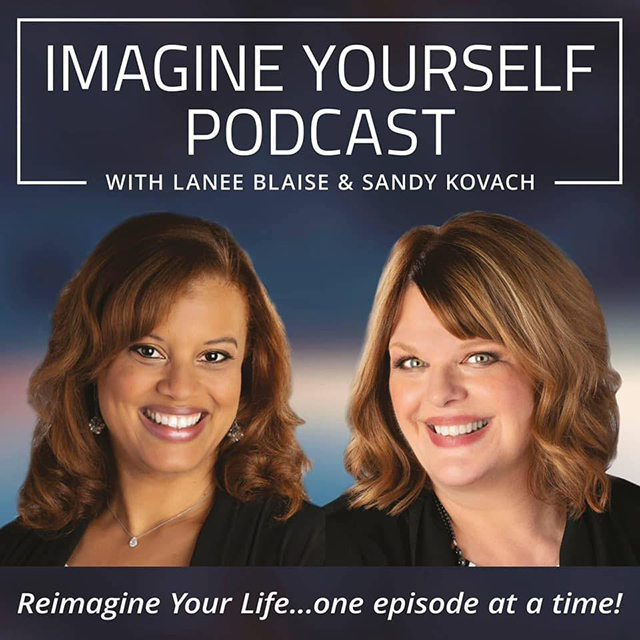 In Romeo Clayton’s book “How We Prevent Wealth” he invites us to learn from his own financial blunders. He shows you how to get on the path to financial independence.
In Romeo Clayton’s book “How We Prevent Wealth” he invites us to learn from his own financial blunders. He shows you how to get on the path to financial independence.
“The successful man will profit from his mistakes and try again in a different way.” – Dale Carnegie
When it comes to money, most of us learn through trial and error. But wouldn’t it be easier if we learned from other people’s mistakes? Then we wouldn’t have to make them ourselves. I mean who wants to get burned learning not to touch the stove. We’d much rather know this information beforehand (no pun intended), so we can avoid the pain. Ouch!
While Clayton’s book doesn’t reveal all of the financial pitfalls you might experience in life (who could in 233 pages?), it highlights many of the mistakes that cost us dearly.
I had the pleasure of meeting Clayton last year at the Financial Blogger’s conference. And when he showed me his book it peeked my interest. So I was determined to read it in 2012.
I must say that I thoroughly enjoyed the read. And the imagery on the book cover definitely brings the message home. Take a close look and you’ll see it’s a piggy bank turned upside down with all of the money falling out.
Clayton’s goal is to help you put more money in the bank.
A Different Kind of Personal Finance Book
This is not your ordinary personal finance book. Sure there may be some similarities in the lessons. But there’s also subject matter discussed in this book that I’ve never seen in any personal finance book. And I’ve read a lot of them. I guess that’s why he says its “A Personal Finance Reflection.”
A few things that stood out in the book were:
- Transparency – Clayton is transparent about his finances from start to finish. He starts the book laying out his earnings and total savings over the past 13 years. Oh, yes he did. After all, how could it be a personal reflection about his finances without the $$$$? He’s essentially showing you the money.
- Emphasis on Saving for Retirement – We live in a now society. And many of us are not thinking about how the choices we make today impact our future. Clayton underscores the importance of doing more today, so you can live in comfort (without working in your golden years) later.
- Student Loan Debt – Clayton has an MBA and he discusses his personal experience of selecting the right college for the money. Student loan debt has surpassed credit card debt and I believe Clayton provides some great tips for those pursuing a higher education to be smarter about acquiring loans.
- Thought Provoking Questions – He uses thought provoking questions throughout the book to get the reader involved. This helps the reader do a self-reflection of what he/she may or not be doing.
- Investing – Clayton’s book offers you some insight into the wonderful world of investing. Where you can be up today and down tomorrow.
- Insurance – Sometimes insurance is an after thought. Clayton challenges you to think beyond today. Will you be prepared for tomorrow if destruction strikes? Will your loved ones have enough if something happens to you?
- Visual Examples – Clayton shows you real-life examples to highlight specific points. These visuals are helpful in reinforcing the message.
Overall, I felt Clayton did an excellent job engaging the reader to learn from his own mistakes. And he covered a wide range of financial topics (insurance, loans, saving, credit).
However, the book assumes the reader has a certain level of financial understanding for some of the areas discussed. So it may be a little challenging for beginners. Since he shares his personal experiences at a higher level.
For example, in investing he assumes the reader has a certain level of understanding about investment vehicles. Readers should not expect to receive a general overview of investment options. Nonetheless, he shares investment tips everyone can use.
Clayton says “We may not be able to learn all the details of investing, but we owe it to ourselves to understand where we, or someone who manages our money is putting, it, and how much it will cost us.”
And he’s right. Bad investment decisions are one of the biggest financial mistakes people make. It’s best to fully understand your investments before you make them.
Overall, it’s a good read (especially for young adults!). Clayton’s book will show you how to make wiser decisions. And pay closer attention to the little things that could be draining your bank account. He also weaves in humor, which is a nice touch.
A few of my favorite quotes from the book were:
- “The earlier we realize our mistakes, the earlier we can turn them around.”
- “We must know our limits, and stay within them.”
- “We can choose to do the right thing and minimize our sacrifices while we are young, or do the wrong thing and sacrifice greatly when we are older.”
- “Wealth is possible for many of us if we make smart financial decisions.”
For more information on Clayton’s book and to order your copy, please visit HowWePreventWealth.com.




